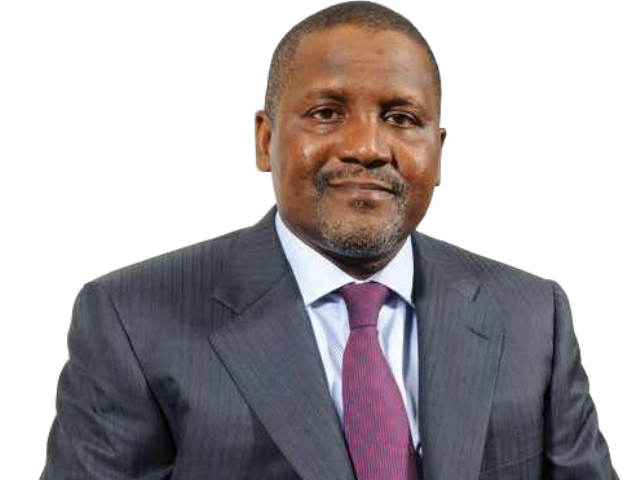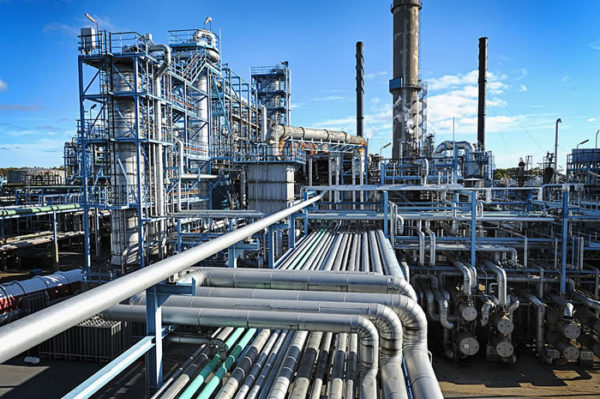Dangote Refinery, one of Africa’s largest oil refineries, has accused oil marketers of complaining to President Bola Ahmed Tinubu that the drop in price of the company’s diesel to N900 per litre, is negatively affecting their businesses
Devakumar Edwin, Vice President, Dangote Industries Limited, disclosed this on a Twitter Spaces session organized by Nairametrics.
“Petroleum product marketers in Nigeria have written to President Bola Tinubu to complain that the refinery local prices which have dropped from N1,200 to N1,000 and now N900 per litre are impacting their businesses negatively,” he said.
Edwin highlighted some of the challenges facing the Dangote Refinery and its impact on Nigeria’s fuel supply and prices.
According to him, the refinery, located in the Lekki Free Zone near Lagos, struggles to sell about 29 tankers of diesel per day due to low patronage from local petroleum product importers.
“As a result of this poor local patronage, the refinery exports most of its diesel and aviation fuel,” he said.
Edwin had earlier said Dangote Refinery products would be exported if the Nigerian National Petroleum Company Limited and other petroleum dealers in the country refuse to patronise it.
“We have been exporting aviation fuel, we have been producing kerosene, we have been producing diesel, but yesterday, we started the production of PMS. So, that was the last stage. The only thing now left out is petrochemicals. So, the good news for the country is we have started producing PMS from our refinery,” he had said on a radio programme.
Asked if the petrol would be sold locally, Edwin replied, “Well, I explained how there has been a kind of a blockade from lifting our products within the country. The traders have been trying to block (it), and so now we have been exporting our petroleum products. PMS, we are ready to pump in as much as possible to the country.
“But if the traders or NNPC are not buying the product, obviously, we will end up exporting the PMS as we are doing with the aviation jet and diesel,” he declared.
Edwin expressed surprise that the company started facing different challenges it never expected when the refinery was set to commence operations.
He recalled that the philosophy initially was to add value to the raw materials available in the country, regretting that Nigeria is still exporting crude and importing refined petroleum products after over three decades.
“The philosophy is to take the crude, and instead of exporting the crude, refine it, add value; export the finished products, and supply the finished products locally. But unfortunately for us, we started facing challenges with the crude supply.
“What is happening today? We are struggling to get the crude. We are now importing the crude from the US, we are importing from Brazil, and from other parts of the world. So, the whole philosophy has gone upside down. After all these decades, we are exporting crude, importing products,” he added.
“The same thing is continuing. We are not getting enough crude allocation, and the crude is still being exported. We are forced to import crude from outside. Yes, we are getting some crude locally, but it’s not adequate.”
ALSO READ:Anxiety As PDP Opts Out Of Peace Accord signing Ceremony For Edo Governorship Election
Recall that the Dangote Refinery which commenced operations in March supplied diesel and aviation jet fuel in April, and it is expected to begin the supply of premium motor spirit (PMS) this month (September).
The company’s CEO, Aliko Dangote, earlier announced that the supply of diesel from his Dangote Refinery has caused a roughly 60% decrease in the commodity’s price in the local market.
The business mogul stated that before the Dangote Refinery began operations, diesel was sold at around N1,700. However, the refinery reduced the price to about N1,000, marking a drop of approximately 60%.
He also noted that despite the exchange rate rising to about N1,500 per dollar, they have managed to keep the price of diesel below N1,200.
Dangote Refinery recently stated that it would export its Premium Motor Spirit (PMS), commonly known as petrol, if the Nigerian National Petroleum Company (NNPC) Limited and other domestic petroleum marketers choose not to purchase it.










